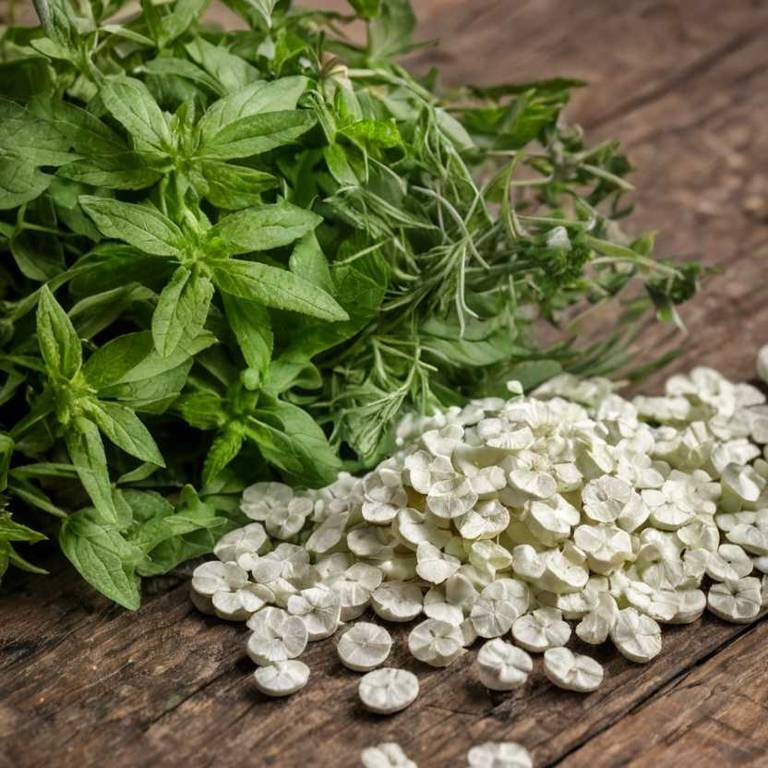Mexican Mint (Lippia alba)
Mexican Mint (Lippia alba) is a member of the Verbenaceae family, native to South America, Central America, and Caribbean. Traditionally, its leaves, flowers, and stems have been used for infusions, decoctions, and oil infusions.
This herb is particularly valued for its carminative, anti-inflammatory, and antispasmodic actions, and has a long history of use in mediterranean herbal traditions, european herbal medicine, and african traditional medicine.

Quick Facts / Key Information
| Common Name | Mexican Mint |
|---|---|
| Scientific Name | Lippia alba |
| Plant Family | Verbenaceae |
| Genus | Lippia |
| Species | alba |
| Native Range | South America, Central America, Caribbean |
| Plant Parts Used | Leaves, Flowers, Stems |
| Primary Medicinal Actions | Carminative, Anti-Inflammatory, Antispasmodic |
| Primary Traditional Systems | Mediterranean Herbal Traditions, European Herbal Medicine, African Traditional Medicine |
| Historical Preparation Methods | Infusion, Decoction, Oil Infusion |
Botanical Identity
- Scientific Name
- Lippia alba
- Common Name
- Mexican Mint
- Synonyms / Alternative Names
- White Sage, Lippia Herb, Lippia Sage
- Plant Family
- Verbenaceae
- Genus
- Lippia
Botanical Description
- Growth Habit
- Perennial herbaceous plant.
- Height
- It typically grows to a height of 30 to 100 centimeters.
- Leaves
- Broad leaves with upper surface gray-green and lower surface pale white, featuring prominent stomatal bands along the midrib.
- Flowers
- Small white flowers arranged in dense spikes, actinomorphic, with five white petals and four stamens, lacking distinct markings
- Stems
- Elongated, erect growth habit, opposite branching pattern, glabrous surface, presence of glandular dots along the epidermis.
Traditional Uses / Historical Use
Traditional Systems
- Mediterranean Herbal Traditions
- European Herbal Medicine
- African Traditional Medicine
Historical Preparation Methods
- Infusion
- Decoction
- Oil Infusion
- Poultice
Medicinal Actions
- Carminative
- Traditionally described as a moderate carminative, in relation to gastrointestinal comfort.
- Anti-inflammatory
- Historically regarded as a mild anti-inflammatory, for general calming applications.
- Antispasmodic
- Commonly referenced as a warming antispasmodic, in spasm-related situations.
- Bitter
- As described in traditional systems, a gentle bitter, in taste-driven classifications.
Active Compounds
- Essential Oil
- A collective term for aromatic compounds extracted from plant material.
- Flavonoid
- Plant-based polyphenolic compounds frequently distributed throughout aerial plant parts.
- Terpenoid
- A large class of naturally occurring compounds derived from isoprene units.
- Phenolic Acid
- A class of aromatic plant compounds commonly found in leaves, seeds, and stems.
Modern Research Overview
Scientific literature concerning this plant spans multiple areas, including phytochemistry and laboratory research. Detailed analysis of published studies is not included at this time and will be added as part of future editorial expansion.
Safety & Contraindications
- General Precautions
- Some general precautions have been associated with the use of this herb.
- Contraindications
- Certain contraindications have been reported in relation to the use of this herb.
- Allergies
- Information regarding allergic responses to this herb is limited.
- Drug Interactions
- Available information regarding interactions with pharmaceutical drugs is limited.
- Toxicity
- Reports of toxicity related to this herb are not well documented in available literature.
- Pregnancy & Breastfeeding
- Use during pregnancy or breastfeeding has not been clearly established in available sources.
Preparation & Usage Methods
- Infusion
- Infusions are commonly prepared using hot water to release aromatic and soluble components.
- Decoction
- A preparation method involving prolonged boiling of roots, bark, or dense plant material.
- Poultice
- A topical preparation made by applying softened plant material externally.
- Capsule
- Plant material is processed into powder and sealed in capsules.
- Tincture
- A preparation involving soaking plant parts in alcohol for extended extraction.
Growing, Harvesting & Storage
Growing / Cultivation
- Soil
- Prefers loamy soil with well-drained conditions. Typically grows best in organically rich soils.
- Sunlight
- Thrives in full sun. Tolerates full sun to partial shade.
- Watering
- Prefers well-balanced moisture levels. Tolerates periodic dry conditions.
Medical Disclaimer
The information provided on this page is for educational and informational purposes only. It is not intended to diagnose, treat, cure, or prevent any medical condition. Always consult a qualified healthcare professional before using any herb for medicinal purposes.